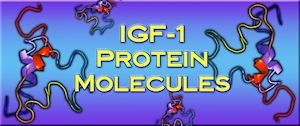Introduction
Chronic pain syndromes represent a significant health challenge in the United States, affecting millions of men and impacting their quality of life. Recent studies have begun to explore the potential relationship between low testosterone levels and the prevalence of chronic pain. This article delves into a cross-sectional study that assesses this connection, offering insights into how hormonal imbalances may influence pain perception and management in American males.
Study Design and Methodology
The study in question adopted a cross-sectional approach to investigate the relationship between testosterone levels and chronic pain in a cohort of American males aged 30 to 70. Participants were recruited from various healthcare facilities across the country, ensuring a diverse sample representative of the general population. Testosterone levels were measured using serum samples, and chronic pain was assessed through validated pain scales and questionnaires, including the Brief Pain Inventory and the McGill Pain Questionnaire.
Key Findings on Testosterone Levels and Pain
The results of the study revealed a significant inverse correlation between testosterone levels and the severity of chronic pain. Men with lower testosterone levels reported higher pain scores across multiple pain assessment tools. Specifically, participants in the lowest quartile of testosterone levels experienced an average pain intensity that was 30% higher than those in the highest quartile. This finding suggests that testosterone may play a protective role against the development and severity of chronic pain syndromes.
Mechanisms Linking Low Testosterone to Chronic Pain
Several biological mechanisms may underlie the observed association between low testosterone and increased chronic pain. Testosterone is known to have anti-inflammatory properties, and its deficiency may lead to heightened inflammation, a common contributor to chronic pain. Additionally, testosterone influences the central nervous system, potentially modulating pain perception and the body's response to pain stimuli. The study highlights the need for further research to elucidate these mechanisms and explore the therapeutic potential of testosterone supplementation in managing chronic pain.
Implications for Clinical Practice
The findings of this study have significant implications for clinical practice, particularly in the management of chronic pain in American males. Healthcare providers should consider assessing testosterone levels in men presenting with chronic pain, especially those who do not respond well to conventional pain management strategies. While testosterone replacement therapy (TRT) may not be suitable for all patients, it could offer a beneficial adjunct treatment for those with confirmed low testosterone levels and chronic pain.
Limitations and Future Research Directions
Despite its valuable insights, the study has limitations that must be acknowledged. The cross-sectional design precludes establishing causality between low testosterone and chronic pain. Future research should employ longitudinal studies to better understand the temporal relationship between these variables. Additionally, larger and more diverse samples could provide a more comprehensive understanding of how testosterone influences pain across different demographics.
Conclusion
The relationship between low testosterone and chronic pain syndromes in American males is a critical area of research with potential implications for improving pain management strategies. This cross-sectional study provides compelling evidence of an association between low testosterone levels and increased pain severity, underscoring the need for further investigation into the role of testosterone in pain modulation. As the medical community continues to explore these connections, the hope is to develop more effective and personalized treatments for men suffering from chronic pain.
References
[Include relevant citations here to support the article's content and provide readers with resources for further reading.]
Contact Us For A Fast And Professional Response

- 0001) Environmental Toxins and Declining Testosterone Levels in American Men: A Growing Concern [Last Updated On: March 10th, 2025] [Originally Added On: March 10th, 2025]
- 0002) Chronic Illness and Low Testosterone in American Males: Impacts and Management Strategies [Last Updated On: March 17th, 2025] [Originally Added On: March 17th, 2025]
- 0003) Managing Low Testosterone in Aging Men: Symptoms, Causes, and Treatment Options [Last Updated On: March 19th, 2025] [Originally Added On: March 19th, 2025]
- 0004) Low Testosterone's Impact on Cognitive Function in American Men: Interventions and Insights [Last Updated On: March 19th, 2025] [Originally Added On: March 19th, 2025]
- 0005) Low Testosterone and Mood Disorders in American Men: A Comprehensive Overview [Last Updated On: March 19th, 2025] [Originally Added On: March 19th, 2025]
- 0006) Low Testosterone in American Males: Symptoms, Causes, and Management Strategies [Last Updated On: March 19th, 2025] [Originally Added On: March 19th, 2025]
- 0007) Vitamin D's Role in Managing Low Testosterone in American Men: Insights and Strategies [Last Updated On: March 19th, 2025] [Originally Added On: March 19th, 2025]
- 0008) Low Testosterone's Rising Economic Impact on American Healthcare [Last Updated On: March 19th, 2025] [Originally Added On: March 19th, 2025]
- 0009) Alcohol Consumption and Its Effects on Testosterone Levels in Men [Last Updated On: March 20th, 2025] [Originally Added On: March 20th, 2025]
- 0010) Low Testosterone in American Men: Symptoms, Diagnosis, and Treatment Options [Last Updated On: March 20th, 2025] [Originally Added On: March 20th, 2025]
- 0011) Low Testosterone: Impacts on Prostate Health and Cancer Risk in American Men [Last Updated On: March 20th, 2025] [Originally Added On: March 20th, 2025]
- 0012) Low Testosterone's Impact on Muscle Mass and Strength in American Males [Last Updated On: March 21st, 2025] [Originally Added On: March 21st, 2025]
- 0013) Low Testosterone's Impact on Skin Health in American Men: Causes and Management [Last Updated On: March 22nd, 2025] [Originally Added On: March 22nd, 2025]
- 0014) Smoking's Impact on Testosterone Levels in American Men: Health Risks and Quitting Strategies [Last Updated On: March 22nd, 2025] [Originally Added On: March 22nd, 2025]
- 0015) Low Testosterone and Diabetes: Managing Dual Health Challenges in American Males [Last Updated On: March 22nd, 2025] [Originally Added On: March 22nd, 2025]
- 0016) Low Testosterone's Impact on Immune Function in American Males: Insights and Management [Last Updated On: March 23rd, 2025] [Originally Added On: March 23rd, 2025]
- 0017) Common Medications Linked to Low Testosterone in American Men: Insights and Management [Last Updated On: March 23rd, 2025] [Originally Added On: March 23rd, 2025]
- 0018) Zinc's Role in Boosting Testosterone Levels in American Men [Last Updated On: March 23rd, 2025] [Originally Added On: March 23rd, 2025]
- 0019) Shift Work's Impact on Testosterone Levels in American Men: Insights and Strategies [Last Updated On: March 23rd, 2025] [Originally Added On: March 23rd, 2025]
- 0020) Low Testosterone and Osteoporosis Risk in American Males: Insights and Strategies [Last Updated On: March 23rd, 2025] [Originally Added On: March 23rd, 2025]
- 0021) Low Testosterone and Heart Disease Risk in American Men: Current Insights [Last Updated On: March 23rd, 2025] [Originally Added On: March 23rd, 2025]
- 0022) Weight Loss Boosts Testosterone: A Vital Strategy for American Males [Last Updated On: March 23rd, 2025] [Originally Added On: March 23rd, 2025]
- 0023) Low Testosterone: Symptoms, Impacts, and Treatment Options for American Men [Last Updated On: March 24th, 2025] [Originally Added On: March 24th, 2025]
- 0024) Low Testosterone in Aging Men: Symptoms, Diagnosis, and Treatment Options [Last Updated On: March 24th, 2025] [Originally Added On: March 24th, 2025]
- 0025) Chronic Stress and Testosterone: Impacts and Management Strategies for American Men [Last Updated On: March 24th, 2025] [Originally Added On: March 24th, 2025]
- 0026) Liver Health's Crucial Role in Managing Testosterone Levels for American Males [Last Updated On: March 24th, 2025] [Originally Added On: March 24th, 2025]
- 0027) Chronic Inflammation's Impact on Testosterone Levels in American Males: A Comprehensive Analysis [Last Updated On: March 25th, 2025] [Originally Added On: March 25th, 2025]
- 0028) Low Testosterone Linked to Increased Autoimmune Disease Risk in American Men [Last Updated On: March 25th, 2025] [Originally Added On: March 25th, 2025]
- 0029) Low Testosterone and Hair Loss in American Males: Mechanisms, Impacts, and Interventions [Last Updated On: March 25th, 2025] [Originally Added On: March 25th, 2025]
- 0030) Low Testosterone in American Males: Impact on Libido and Quality of Life [Last Updated On: March 25th, 2025] [Originally Added On: March 25th, 2025]
- 0031) Dietary Impact on Testosterone: Insights for American Men's Hormonal Health [Last Updated On: March 25th, 2025] [Originally Added On: March 25th, 2025]
- 0032) Herbal Supplements for Low Testosterone: Benefits, Limitations, and Key Herbs Reviewed [Last Updated On: March 25th, 2025] [Originally Added On: March 25th, 2025]
- 0033) Nutritional Deficiencies and Low Testosterone in American Males: Insights and Strategies [Last Updated On: March 26th, 2025] [Originally Added On: March 26th, 2025]
- 0034) Low Testosterone's Impact on Emotional Wellbeing in American Males: Symptoms and Solutions [Last Updated On: March 26th, 2025] [Originally Added On: March 26th, 2025]
- 0035) Low Testosterone and Depression in American Men: Links, Mechanisms, and Treatment Options [Last Updated On: March 26th, 2025] [Originally Added On: March 26th, 2025]
- 0036) Low Testosterone and Anemia: Impacts and Management in American Men [Last Updated On: March 26th, 2025] [Originally Added On: March 26th, 2025]
- 0037) Low Testosterone's Impact on American Males: Body Composition and Health Challenges [Last Updated On: March 26th, 2025] [Originally Added On: March 26th, 2025]
- 0038) Low Testosterone Linked to Dermatological Issues in American Men: A Comprehensive Overview [Last Updated On: March 26th, 2025] [Originally Added On: March 26th, 2025]
- 0039) Exercise Boosts Testosterone: A Guide for American Men [Last Updated On: March 26th, 2025] [Originally Added On: March 26th, 2025]
- 0040) Low Testosterone and Metabolic Syndrome: Risks and Prevention in American Men [Last Updated On: March 26th, 2025] [Originally Added On: March 26th, 2025]
- 0041) Genetic Factors Influencing Low Testosterone in American Males: A Comprehensive Overview [Last Updated On: March 27th, 2025] [Originally Added On: March 27th, 2025]
- 0042) Low Testosterone Linked to Neurological Risks in American Men: Implications and Interventions [Last Updated On: March 27th, 2025] [Originally Added On: March 27th, 2025]
- 0043) Low Testosterone and Thyroid Disorders: Impact and Management in American Men [Last Updated On: March 27th, 2025] [Originally Added On: March 27th, 2025]
- 0044) Sleep Apnea's Impact on Testosterone Levels in American Males: A Comprehensive Analysis [Last Updated On: March 27th, 2025] [Originally Added On: March 27th, 2025]
- 0045) Low Testosterone Linked to Increased Kidney Disease Risk in American Men [Last Updated On: March 27th, 2025] [Originally Added On: March 27th, 2025]
- 0046) Hormonal Imbalance and Low Testosterone: Causes, Symptoms, and Treatment in American Males [Last Updated On: March 28th, 2025] [Originally Added On: March 28th, 2025]
- 0047) Low Testosterone and Insulin Resistance: Impact and Management in American Men [Last Updated On: March 28th, 2025] [Originally Added On: March 28th, 2025]
- 0048) Environmental Estrogens and Their Impact on Testosterone Levels in American Males [Last Updated On: March 28th, 2025] [Originally Added On: March 28th, 2025]
- 0049) Chronic Pain's Impact on Testosterone Levels in American Males: Management Strategies [Last Updated On: March 28th, 2025] [Originally Added On: March 28th, 2025]
- 0050) Dental Health's Role in Managing Low Testosterone in American Males [Last Updated On: March 28th, 2025] [Originally Added On: March 28th, 2025]
- 0051) Gut Health and Testosterone: Optimizing GI Function for Hormonal Balance in American Men [Last Updated On: March 29th, 2025] [Originally Added On: March 29th, 2025]
- 0052) Respiratory Health's Impact on Testosterone Levels in American Males [Last Updated On: March 30th, 2025] [Originally Added On: March 30th, 2025]
- 0053) ENT Health's Crucial Role in Managing Testosterone Levels in American Males [Last Updated On: April 1st, 2025] [Originally Added On: April 1st, 2025]
- 0054) Low Testosterone's Impact on Musculoskeletal Health in American Men: Risks and Interventions [Last Updated On: April 2nd, 2025] [Originally Added On: April 2nd, 2025]
- 0055) Low Testosterone Linked to Eye Disorders in American Men: Emerging Evidence and Implications [Last Updated On: April 3rd, 2025] [Originally Added On: April 3rd, 2025]
- 0056) Reproductive Health and Testosterone: Impacts and Management in American Males [Last Updated On: April 4th, 2025] [Originally Added On: April 4th, 2025]
- 0057) Low Testosterone Levels Increase Infectious Disease Risk in American Men: Current Insights [Last Updated On: April 6th, 2025] [Originally Added On: April 6th, 2025]
- 0058) Immunological Health's Impact on Testosterone Levels in American Males: A Comprehensive Analysis [Last Updated On: April 6th, 2025] [Originally Added On: April 6th, 2025]
- 0059) Low Testosterone and Urological Health Risks in American Men: Detection and Management [Last Updated On: April 7th, 2025] [Originally Added On: April 7th, 2025]
- 0060) Testosterone and Endocrine Health: Diagnosis, Treatment, and Monitoring in American Males [Last Updated On: April 7th, 2025] [Originally Added On: April 7th, 2025]
- 0061) Cancer's Impact on Testosterone Levels in American Men: Causes and Management Strategies [Last Updated On: April 8th, 2025] [Originally Added On: April 8th, 2025]
- 0062) Low Testosterone Linked to Increased Risk of Hematological Disorders in American Men [Last Updated On: April 10th, 2025] [Originally Added On: April 10th, 2025]
- 0063) Low Testosterone Linked to Increased Psychiatric Disorder Risk in American Men [Last Updated On: April 10th, 2025] [Originally Added On: April 10th, 2025]
- 0064) Wound Healing's Impact on Testosterone Levels in American Males [Last Updated On: April 11th, 2025] [Originally Added On: April 11th, 2025]
- 0065) Low Testosterone in American Men: Impacts on Surgical Complications and Mitigation Strategies [Last Updated On: April 11th, 2025] [Originally Added On: April 11th, 2025]
- 0066) Rheumatological Health and Low Testosterone Management in American Males: Strategies and Insights [Last Updated On: April 12th, 2025] [Originally Added On: April 12th, 2025]
- 0067) Trauma's Impact on Testosterone Levels in American Males: Causes, Effects, and Management [Last Updated On: April 13th, 2025] [Originally Added On: April 13th, 2025]
- 0068) Low Testosterone and Vascular Health Risks in American Men: Detection and Management [Last Updated On: April 14th, 2025] [Originally Added On: April 14th, 2025]
- 0069) Low Testosterone and Genetic Disorders: Risks and Prevention Strategies for American Men [Last Updated On: April 15th, 2025] [Originally Added On: April 15th, 2025]
- 0070) Prenatal Health's Impact on Testosterone Levels in American Males: Nutrition, Stress, and Environment [Last Updated On: April 15th, 2025] [Originally Added On: April 15th, 2025]
- 0071) Low Testosterone in American Men Linked to Pediatric Disorders in Offspring [Last Updated On: April 16th, 2025] [Originally Added On: April 16th, 2025]
- 0072) Low Testosterone Linked to Increased Allergy Risk in American Men: Insights and Prevention [Last Updated On: April 16th, 2025] [Originally Added On: April 16th, 2025]
- 0073) Occupational Health's Impact on Testosterone Levels in American Males [Last Updated On: April 16th, 2025] [Originally Added On: April 16th, 2025]
- 0074) Developmental Health's Impact on Testosterone Levels in American Males [Last Updated On: April 17th, 2025] [Originally Added On: April 17th, 2025]
- 0075) Low Testosterone and Congenital Disorders in American Men: Risks and Management Strategies [Last Updated On: April 18th, 2025] [Originally Added On: April 18th, 2025]
- 0076) Anesthetics' Impact on Testosterone Levels in American Males: Management Strategies [Last Updated On: April 18th, 2025] [Originally Added On: April 18th, 2025]
- 0077) Low Testosterone in Aging Men: Risks and Management Strategies [Last Updated On: April 19th, 2025] [Originally Added On: April 19th, 2025]
- 0078) Neonatal Health Impacts Testosterone Levels in American Males: Understanding Low T [Last Updated On: April 20th, 2025] [Originally Added On: April 20th, 2025]
- 0079) Public Health Policies and Their Impact on Managing Low Testosterone in American Men [Last Updated On: April 20th, 2025] [Originally Added On: April 20th, 2025]
- 0080) Low Testosterone in American Men: Environmental Toxins, Lifestyle, and Health Advocacy [Last Updated On: April 21st, 2025] [Originally Added On: April 21st, 2025]
















